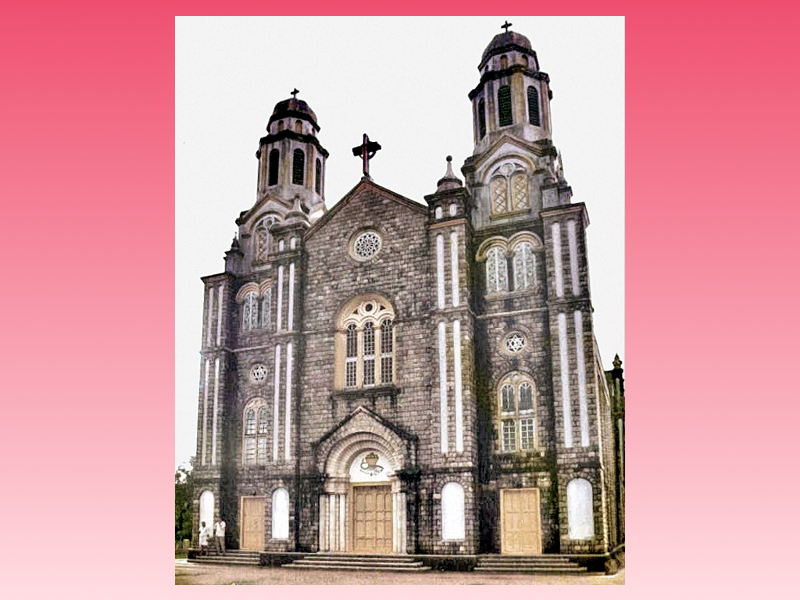By Celine Mary
A dispute, more than a century-old and between the Orthodox and Jacobite factions of the Malankara Church, has resurfaced in Kerala, even after being settled by the Supreme Court in 2017 in a very detailed judgement covering all the aspects of the case.
Background
The litigants are the Jacobite faction and the Orthodox faction of the Malankara Syrian Orthodox church. The Jacobite faction owe their allegiance to the Patriarch of Antioch while the Orthodox faction are of the opinion that the spiritual allegiance to the Patriarch cannot be extended to temporal and administrative powers which should be local, with the Metropolitan of the Malankara Orthodox Church in Kottayam. A Constitution was adopted in 1934 by the Malankara Church, which has been disputed by the Patriarch faction, but upheld by the Supreme Court. However at the root of the dispute is the possession of about 1100 churches, which both the factions are staking claim to.
In the past, there have been Supreme Court verdicts in 1958, 1995 and 2002, all in favour of the Orthodox faction.
The 2017 Supreme Court judgement was in the Orthodox faction’s favour as well, which categorically ordered that all Properties would remain with the Malankara church and if there is a faction like the Jacobites that wants to break free of this denomination on spiritual grounds, they were free to do so, but without the Properties. The Jacobites though, still want possession of certain churches where they claim they are in majority in the parish.
Since then, the Jacobite faction has been creating hurdles for the administration and has not allowed the church properties to be handed over to the Orthodox faction. They have presented objections about the judgement not being clear enough about or on the use of church cemeteries.
The 276 page detailed judgement broadly addresses five issues.
Prime jurisdiction over temporal, ecclesiastical and spiritual administration
The Supreme Court has categorically adjudicated that the jurisdiction is vested in the local Malankara Metropolitan and other authorities – “It is intended for proper administration of the church and does not run against the concept of the spiritual authority of the Patriarch of Antioch.” It is not feasible for the Patriarch of Antioch to manage the daily affairs of the church in India while residing abroad. Granting of spiritual supremacy to the Patriarch cannot be extended to the day-to-day administration of the church.
Title to the Church Properties
The Supreme court observed, “The effort made by the Patriarch faction appears to be for temporal gains under the guise of supremacy of the Patriarch as the Vicar and priests have the power of management in addition to performing the religious duties. No group or denomination can take away the Church and form another group for its management as that would virtually tantamount to usurping its properties and the Church itself. When the Church has been created and is for the benefit of beneficiaries, in our opinion, it is not open for beneficiaries even by majority to usurp its property or management. The properties would always remain to be Malankara Church properties”. The title to the property therefore remains with the Malankara church, which is the Orthodox faction.
Belief of individual Parishioners
In a Secular country like India, the Supreme Court pointed out “It is open to the Parishioners to believe in the spiritual supremacy of Patriarch or apostolic succession but it cannot be used to appoint Vicars, Priests, Deacons, Prelates etc. in contravention of the 1934 Constitution.” Therefore, nobody is stopping the Patriarch faction from believing in the spiritual supremacy of whomever they want to believe in.
Validity of the 1934 Constitution
“The 1934 Constitution fully governs the affairs of the Parish Churches and shall prevail”, according to the judicial order.
Use of Church Cemeteries
One thorn in the side for the Jacobite faction is that the Orthodox faction was creating hurdles in burials of the Jacobite parishioners and their family members. The Supreme Court stated, “The Church and the Cemetery cannot be confiscated by anybody. It has to remain with the Parishioners as per the customary rights and nobody can be deprived of the right to enjoy the same as a Parishioner in the Church or to be buried honourably in the cemetery, in case he continues to have faith in the Malankara Church.”
While all of this has been addressed in the ruling, it has been 3 years since it was issued and many of the churches have yet not been handed over to the rightful owners.
Politicization of a Civil Suit
The problem is that the Kerala government knows that taking a stand in one faction’s favour would alienate the party from the other. So, it has been dragging its feet for three years creating a very bad precedent in the process. It is giving credence to the rule of the mob where any large group of people can stake claim over a property and be dealt with kid gloves while the rightful owners are made to run from pillar to post.
In September 2019, the Supreme Court pulled up the Kerala Chief Secretary over the state government’s failure to implement its 2017 order.
Both the factions have now met Modi to get their dispute settled. While the Jacobite faction knows the Supreme Court verdict is not in its favour, the Orthodox faction is apprehensive about the politics that is being played out in a matter that is purely about property titles.
Instead of delivering justice to the aggrieved party, what the CPIM government first tried to do was to arrange some sort of a peace agreement between the two. When that did not work, it is hoping that Modi somehow forces an agreement down both the faction’s throats, so that the Kerala government can shrug its shoulders, pass off any responsibility to the PM, and thus not lose too many of their voters.
Its high time Pinarayi Vijayan stopped this politicization of a civil suit, just to pander to votes and ensured that Justice is served.
Disclaimer: The opinions expressed within this article are the personal opinions of the author. AlignIndia does not take any responsibility for the content of the article.
(Celine Mary is a social media activist, fighting against post-truth and for secular values.)


